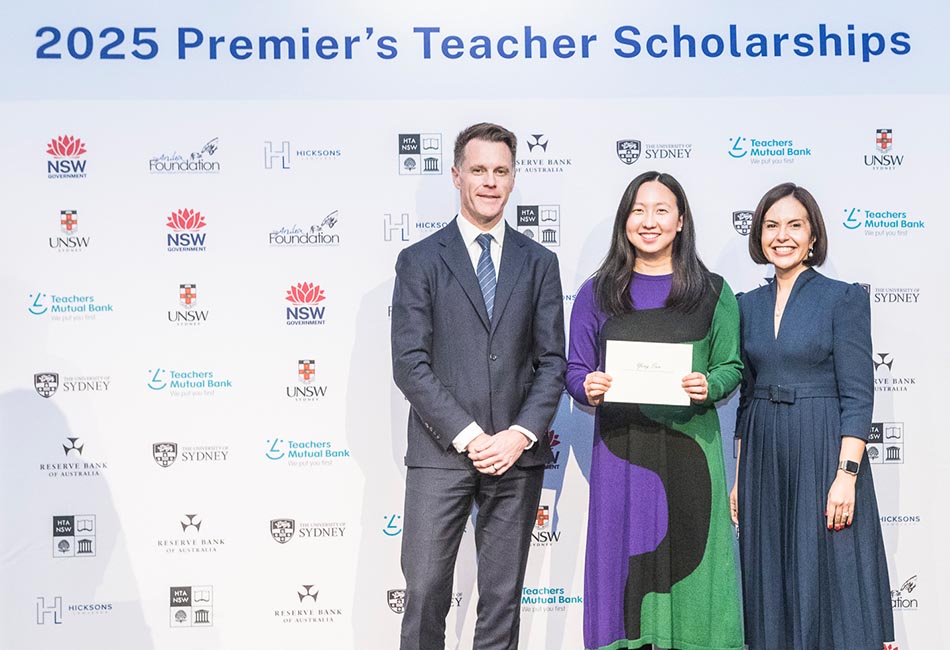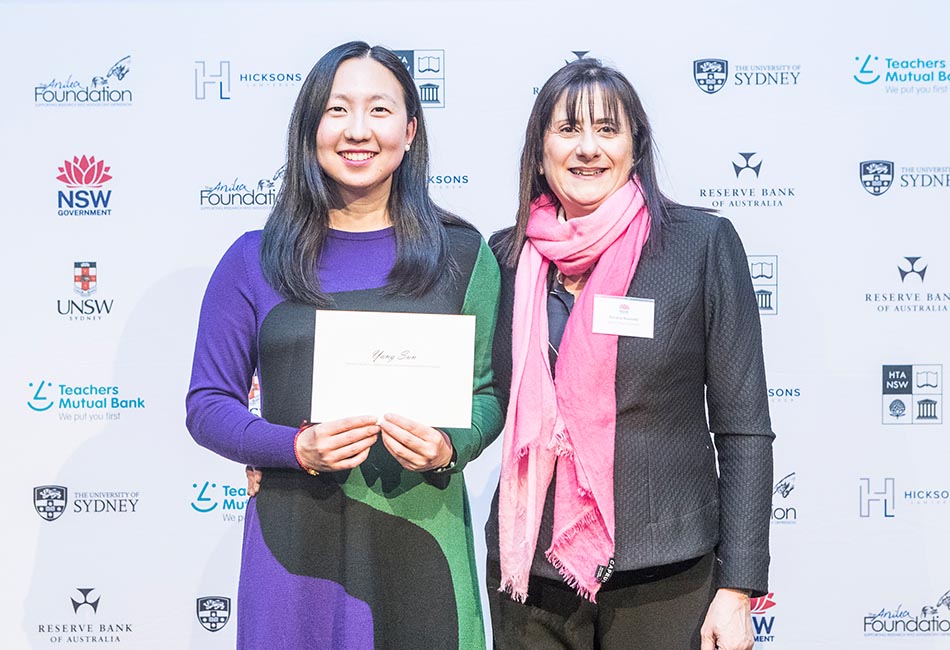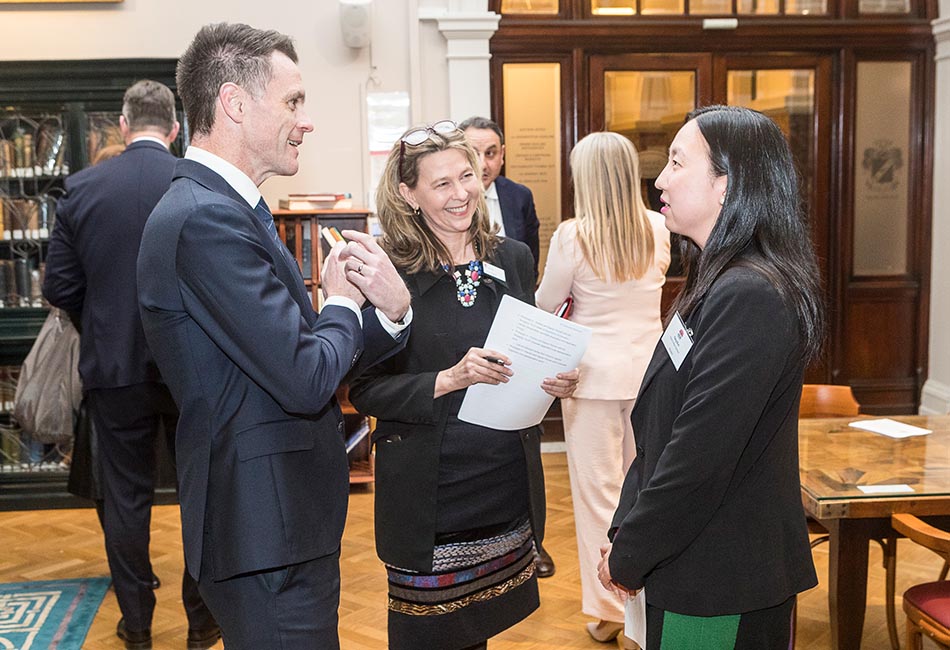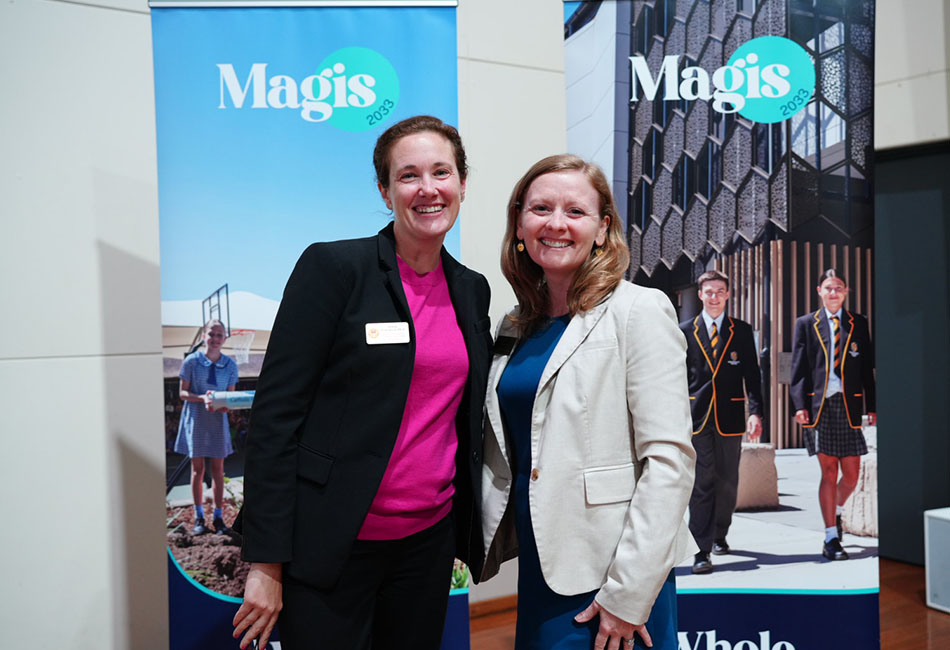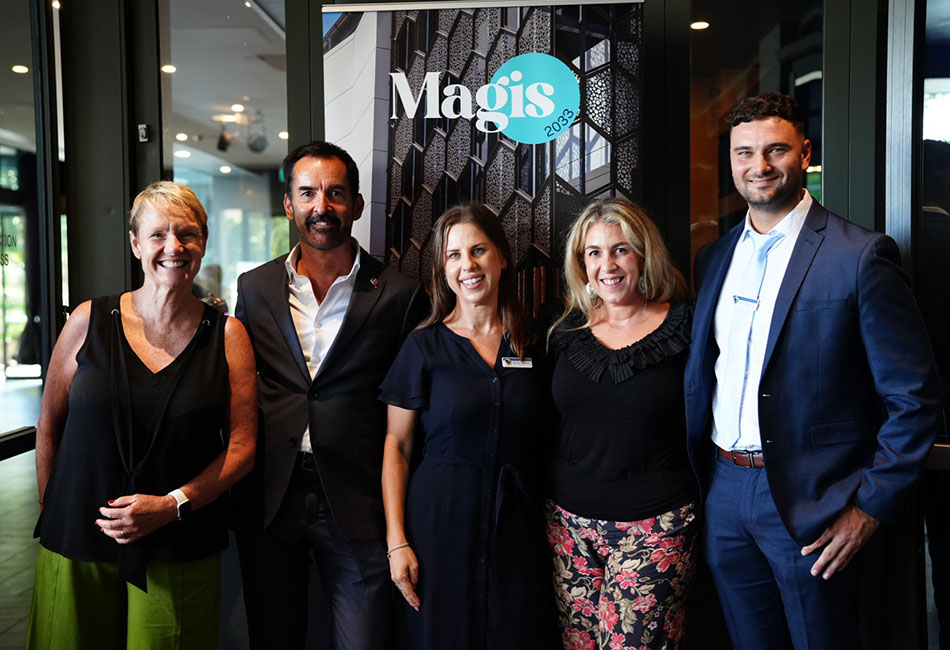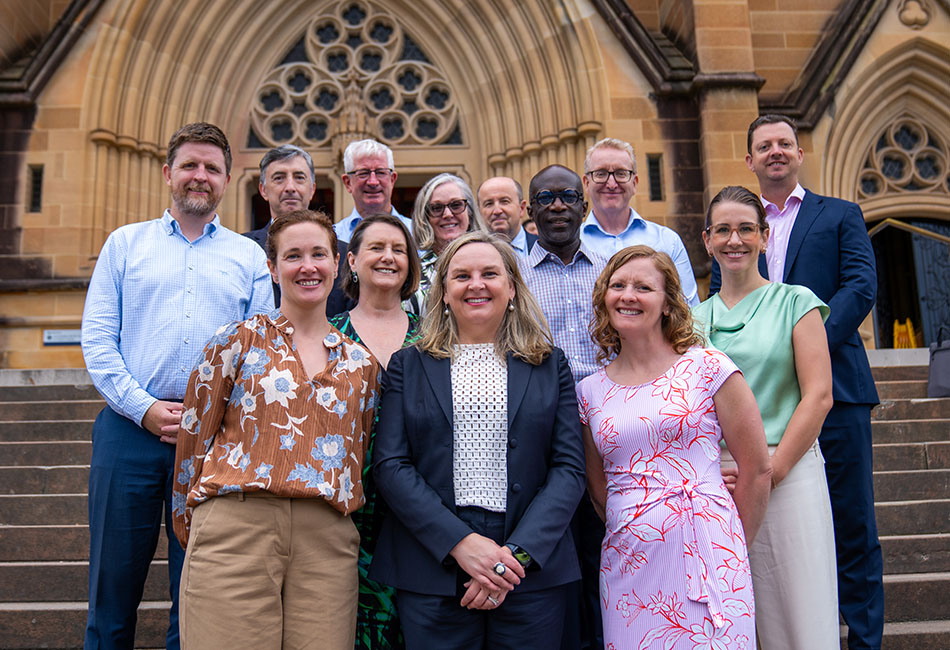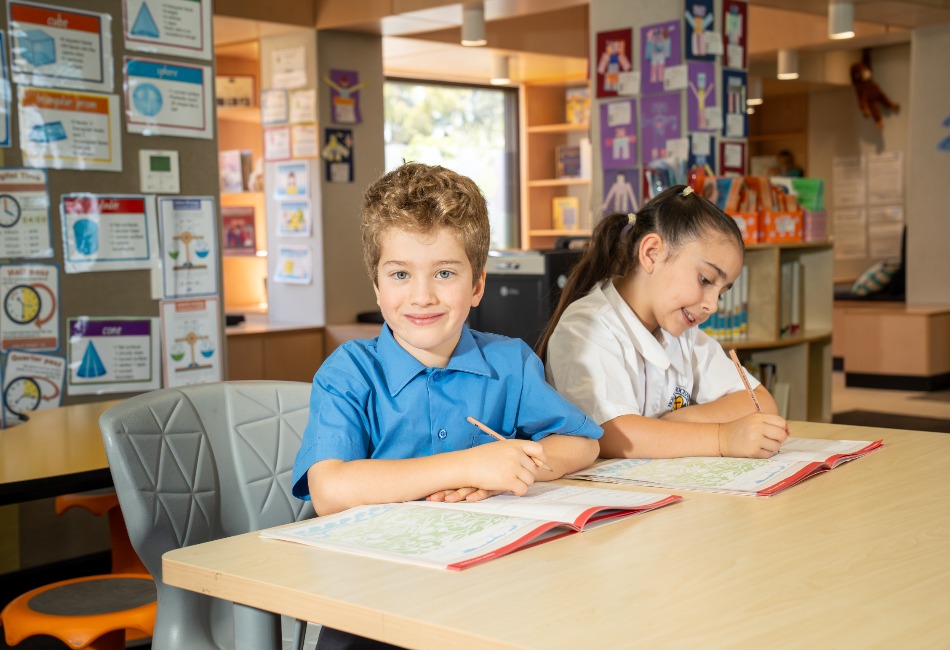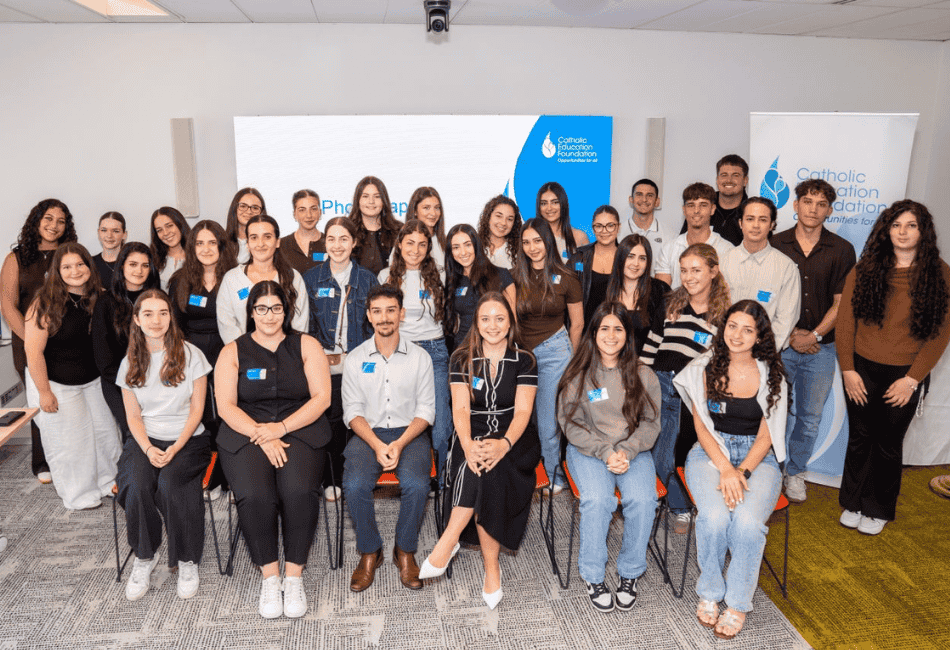Yang Sun feels like something is missing.
She loves her students and she loves her school, and everyday for the past 15 years she’s relished the challenge of making a positive difference in young people’s lives.
When it comes to students’ mental health and wellbeing though, she knows more can be done. More has to be done. One in seven Australian children and adolescents experienced a mental illness in the last 12 months alone.
Ms Sun is on a mission to change the way mental health is addressed in the classroom. And now she gets the chance to really make that happen.
The Marist College Eastwood teacher was recently named as one of 17 recipients of this year’s NSW Premier’s Teacher Scholarships in a ceremony at the State Library.
Ms Sun was awarded the 2025 Premier’s Anika Foundation Youth Depression Awareness Scholarship, which helps to support research into the application of best practices relevant in addressing depression in children and adolescents in educational settings.
She will now depart on a five-week journey throughout the United States of America, the United Kingdom, Scandinavia and Australia, where she hopes to conduct research that will bring to light the need to revamp schools’ approach to mental health and wellbeing.
Ms Sun, who is also studying cognitive psychology with a specialisation in mental health and positive wellbeing, said she was emboldened to apply for the scholarship after seeing how students struggle with mental health both in and outside of the classroom.
“After 15 years of teaching, I feel as though we place so much emphasis on curriculum and not enough on mental health.
“I’m starting to see this pattern, this correlation, between learning growth and mental wellbeing. Without mental wellbeing, one’s academic achievement is actually stifled, it’s inauthentic.”
Ms Sun’s particular area of focus is bridging the gap between wellbeing research and wellbeing practices, providing educators with practical strategies they can embed in the everyday classroom.
“Through my research, I’m hoping to see the positive impact of integrating wellbeing strategies in the classroom rather than seeing it as a separate program,” she said.
“I’m hoping to interview students first hand on their experiences of practising mental health strategies as part of their daily routine.
“I want to look at the lack of funding in the education landscape on mental health and how other countries have tried to overcome that.”
As an HSC English Specialist for Sydney Catholic Schools, Ms Sun also has a keen interest in dissecting the benefits of reading and its role in promoting mental health.
“I’d like to visit schools and organisations that have a reading program that looks at the power of reading and what it is able to instigate,” she said.
“It’s not just the metaphors and similes or character and plot, but also how reading the same text can generate collective empathy or encourage students to relate the text to aspects in their own lives by stepping beyond the text.”
When asked about the application process, Ms Sun spoke about the lengthy process that took her two months to finalise. It involved in-depth research, podcast making and on-going reflection of her teaching journey.
She also emphasised that she would not have achieved this without the unwavering and ongoing support of her principal at Marist College Eastwood, Ms Silvana Rossetti.
“She was the one who initially encouraged staff to apply for the NSW Premier’s Teacher Scholarships,” Ms Sun said.
“She then supported me all the way through, from an initial meeting to having the final look over my application. She’s a phenomenal human being!”
Ms Sun says she wants to continue developing her interest in the mental health space and sees the classroom as the perfect place to impact change.
“I think that is where the teacher has the greatest influence, in front of a room full of students,” she said.
“I hope in my research I can provide teachers across Sydney Catholic Schools and across the state with more evidence based tools that can be adopted to further the mental health and wellbeing of students.”

